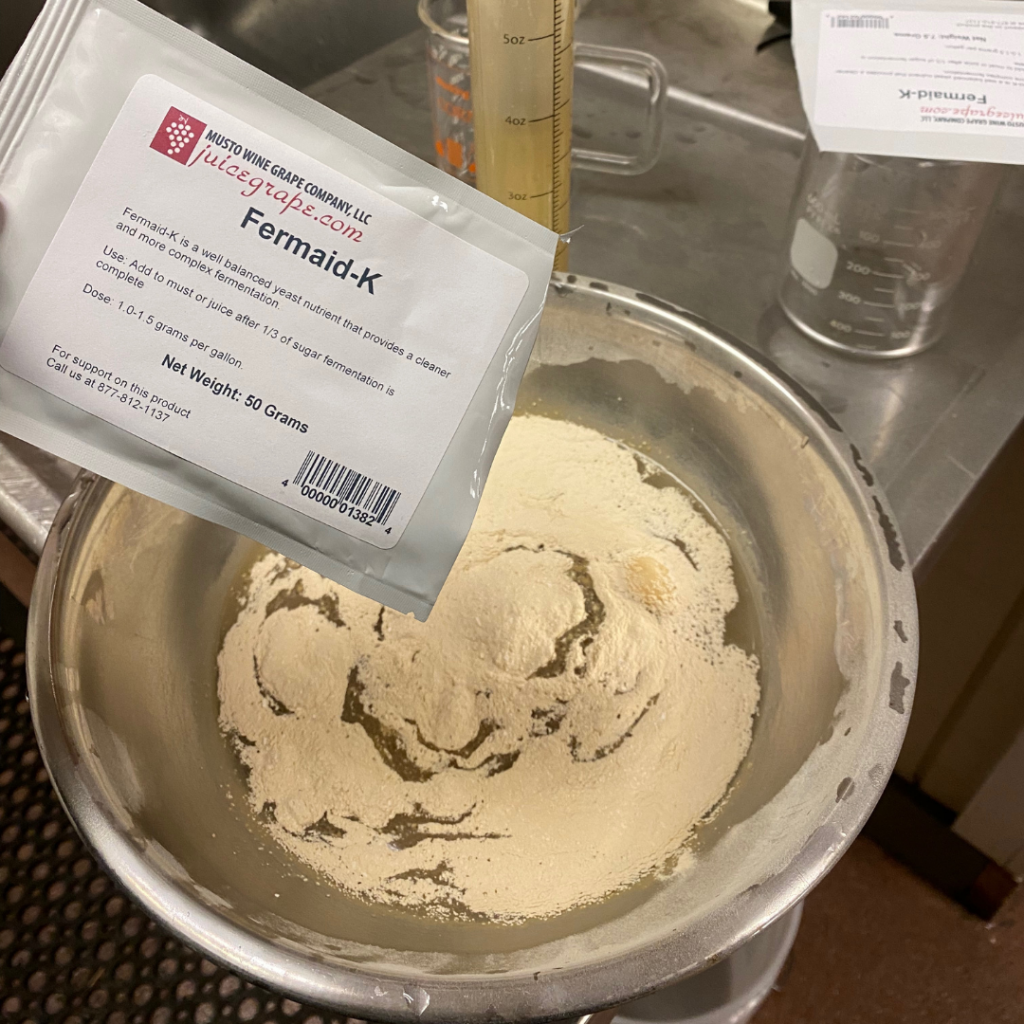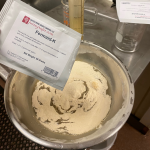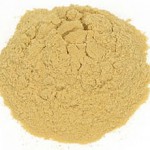What is Fermaid K? And Why/When do we use it?

Femaid-K is a blended complex yeast nutrient that supplies ammonia salts (DAP), free amino acids (organic nitrogen derived from inactivated yeast), sterols, unsaturated fatty acids, key nutrients and inactive yeast. The unsaturated fatty acids and sterols provided by Fermaid K are important survival factors yeast cells need to maintain alcohol resistance and permease activity, and help keep volatile acidity levels low. Nitrogen is critical for protein synthesis and to maintain cellular growth. Fermaid K’s alpha amino acids provide a nitrogen source which is easier and more efficient for yeast to metabolize than nitrogen from traditional ammonia salts. The cell wall fractions in Fermaid K absorb short and medium chain fatty acids that are toxic to yeast, and provide nucleation sites to help keep the yeast in suspension.
Fermaid K is like the power bar they hand out to runners at the last mile. The power bar gives you the energy and nutrients get through those last few miles of the race.
You can add Fermaid-K at 8 Brix
The Winemaker’s Think Tank: Vol 6 – Do I Add Yeast to My Wine?
What’s the Winemaker’s Think Tank?
Every Thursday we will post about a few frequently asked questions that our winemaker has answered. If you have a winemaking question you would like to have answered, please email us at support@juicegrape.com and we will try to get into next week’s post. Cheers! 🙂
Do I Add Yeast to My Wine?
Some winemakers prefer what is called a “natural method” of fermentation, by allowing the yeast that live on the grape skins to ferment the must into wine. While these yeast can start the process of fermentation, they generally have too low of a population and alcohol tolerance to successfully finish the fermentation process. The most successful fermentations are conducted with lab cultured yeast cells. This is not to say that this method isn’t natural as well. Scientists travel to famous wine growing regions to obtain samples of the natural yeast flora that exist in those environments. They take these samples back to the lab and culture them, breeding select and healthy populations that can be packed and sold to winemakers all over the world. These selected yeast strains have a higher alcohol tolerance and have had the benefit of many trials and research conducted on their behalf to see exactly how they affect a wine. By using these strains you will not only have a more successful fermentation, but also more predictable results rather than the unpredictable results of the wild flora “natural yeast” that live on the skins. Through their research, scientists have found that certain yeasts promote certain attributes of the wine such as color security, fruit characters, spice flavors, and acid reduction. A vintner may select one of these commercially bred strains to get the desired effect they would like in their end product.
We hope this information helps with your winemaking. If you have any follow up questions or winemaking questions in general, please email us at support@juicegrape.com.









Recent Comments